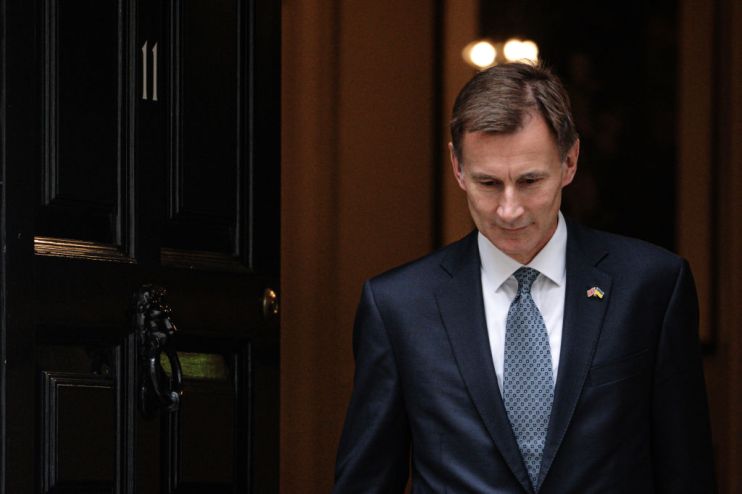Brits have ‘just got a lot poorer’, warns IFS after Jeremy Hunt’s £55bn tax raid

Brits have “just got a lot poorer” warned the head of a leading financial think tank, following Jeremy Hunt’s tax-grabbing autumn statement yesterday.
Paul Johnson, director of the Institute for Fiscal Studies (IFS) argued that the fiscal statement signified the beginning of a “long, hard, unpleasant” journey characterised by higher taxes, loss of income and struggling public services.
He said: “What we are really doing is reaping the costs of a long-term failure to grow the economy, the effects of population ageing, and high levels of past borrowing.”
Johnson believed Hunt’s budget reflected a growing political understanding of the UK’s dire economic situation.
The Office for Budget Responsibility has confirmed the UK is already in a recession, and faces seven percent reduction in living standards in total over the two financial years up to 2023-24 – wiping out the previous eight years’ worth of growth.
The Bank of England has separately warned the country could be facing the deepest economic downturn in decades.
Johnson blamed this both on significant macro-factors such as heavy borrowing to deal with the pandemic and energy crisis, alongside “economic own goals.”
“Hunt appears to have recognised this. After years of cakeism, his colleagues, the opposition, and we the voters need to take that fact on board too,” Johnson said.
The Chancellor unveiled a £55bn tax grab in the House of Commons yesterday, slashing the threshold for the top rate of income tax, while also freezing the national insurance and inheritance tax thresholds.
Businesses also face an increase in national insurance contributions, while the capital gains tax allowance will be slashed from £12,300 to £3,000.
The lion’s share of the revenue raising has come from taxing energy producers – in a £30bn-plus tax raid.
Hunt has beefed up the windfall tax on oil and gas producers profits, which been extended until 2028 and been increased from 25 per cent to 35 per cent, and is expected to raise an additional £20bn.
Electricity generators will also now be included in the toughened tax regime under a new levy, and will pay a 45 per cent rate.
The tax will be levied on “extraordinary profits”, made on electricity sold above £75 per megawatt hour.
Power currently trades around £260 per MWh.
The Treasury expects the levy to provide a further £14bn in revenue.
Johnson argued the latest measures reveal the UK has entered a “new era of higher taxation,”
He said: “I would be most surprised if the tax burden gets back down to its long term pre-Covid average at any time in the next several decades.”